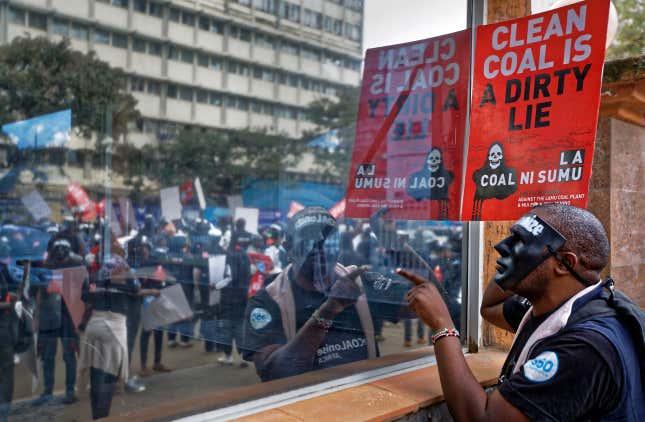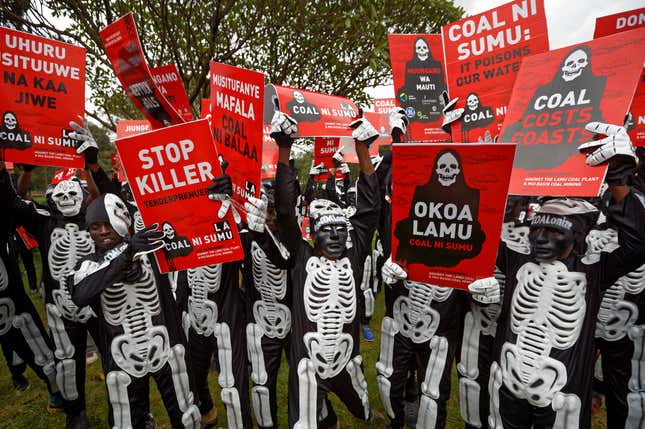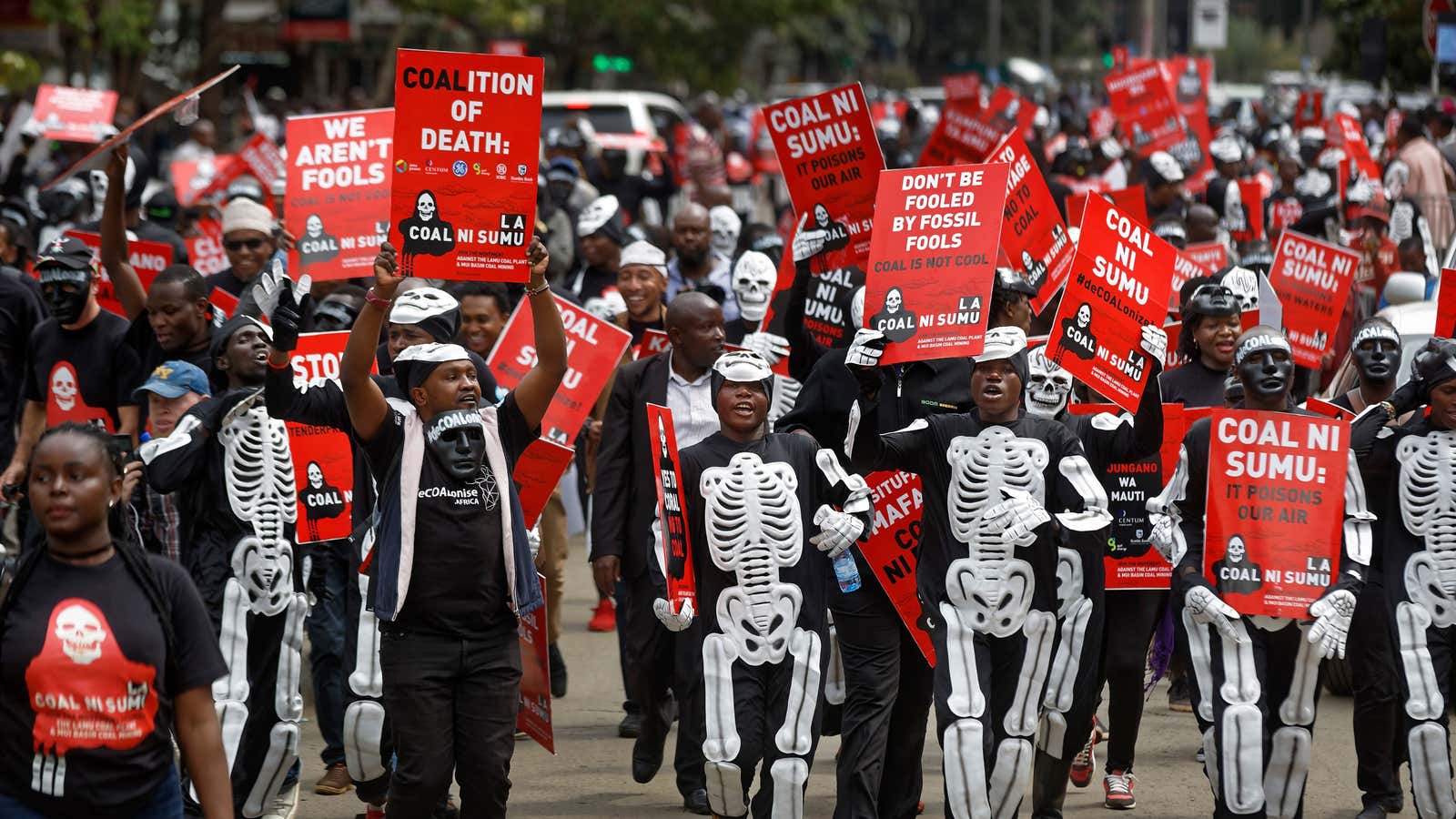Environmental activists in Kenya are determined to show that coal has no place in the country’s energy future.
This week, dozens of activists descended on the capital in what campaigners described as the “first anti-coal demonstration in Nairobi.” The coalition of advocacy groups is protesting the building of a coal-fired energy plant on the island of Lamu, a major tourist attraction, and a UNESCO heritage site, besides coal mining in the Mui Basin in Kitu county in eastern Kenya.
The over 1,000-megawatt coal plant in Lamu is part of an ambitious project aimed at generating electricity to help boost the region’s socio-economic landscape. Built through a joint Kenyan-Chinese venture, the plant will initially rely on combustible imports from South Africa—a move environmentalists say will damage natural and marine resources, and destroy fishermen and farmers’ livelihoods.

Carrying signs that read “Coalition of death,” “Clean coal is a lie,” and “Don’t be fooled by fossil fool. Coal is not cool,” marchers said the government should put the lives of “Kenyans before coal.” The protests followed an unsuccessful legal battle to try and stop the plant’s opening, with activists arguing that the threat of climate change has made renewable sources of energy like wind and solar more attractive across the world. Officials insist they have carried out due diligence, and that the plant will start production to help meet future power demands.

The Kenyan-Chinese partnership, however, underlies another effort Beijing is undertaking globally to expand its coal-fired power capacity. As China’s investment in renewable energy projects at home have dramatically increased, Chinese corporations have also been building hundreds of coal plants abroad, some in countries that today burn little or no coal. This include in Africa, where the promise of subsidized development is pushing many nations to invite the Chinese.

Energy experts say these coal plants run against global emission-cutting drives proclaimed in the Paris Agreement, would harm significant steps taken toward establishing green economies, while the waste and toxins would hurt local communities.
“Why are they not doing this project in China?” Hussein Khalid, executive director of community organization Haki Africa, told the Associated Press. “Why are they coming here to spoil our environment? So we are telling the government that Kenyans come first.”

_____________________________________________________________________________
